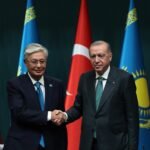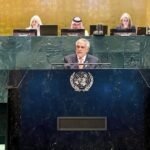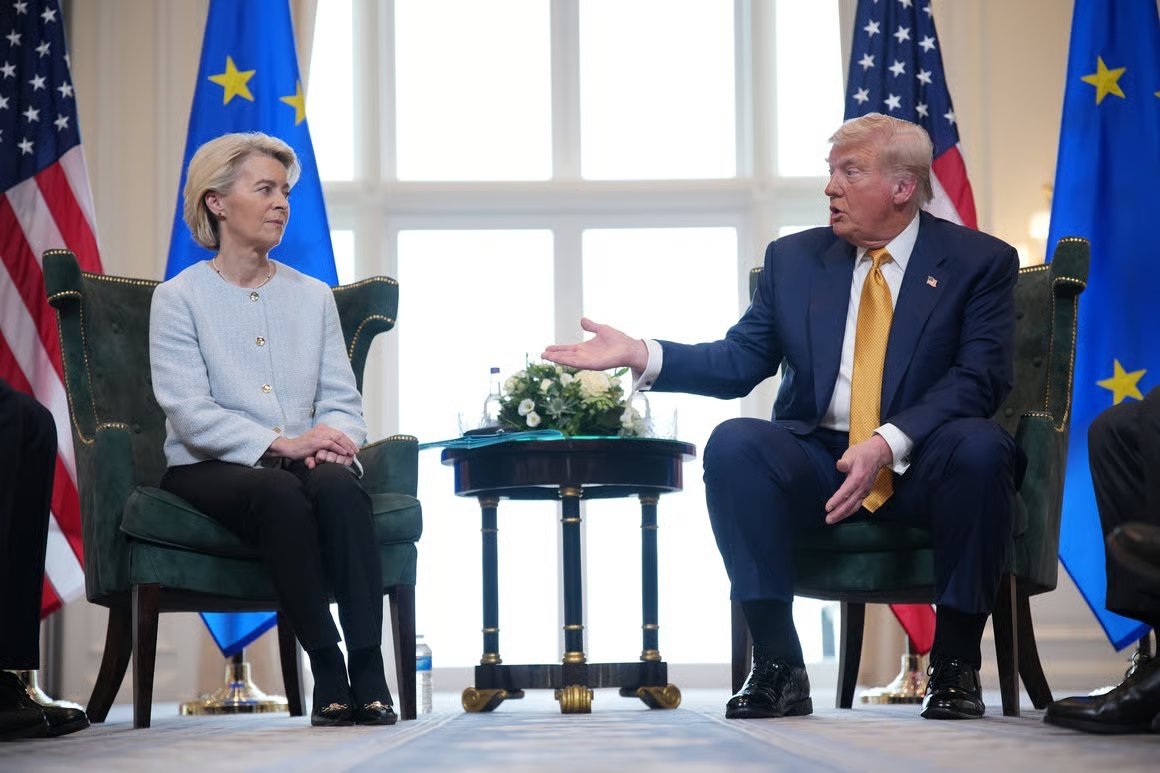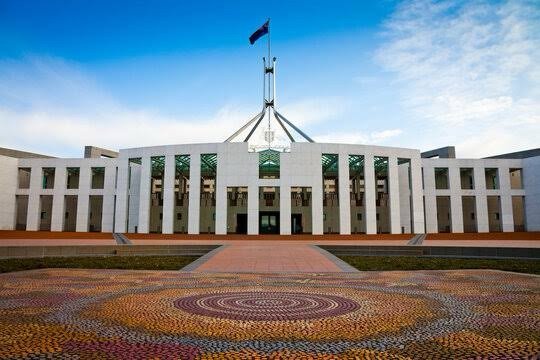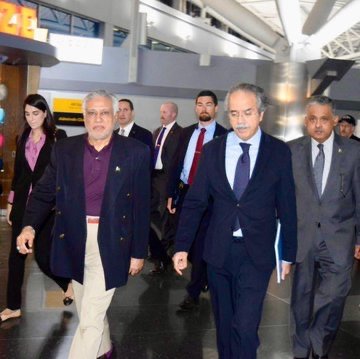
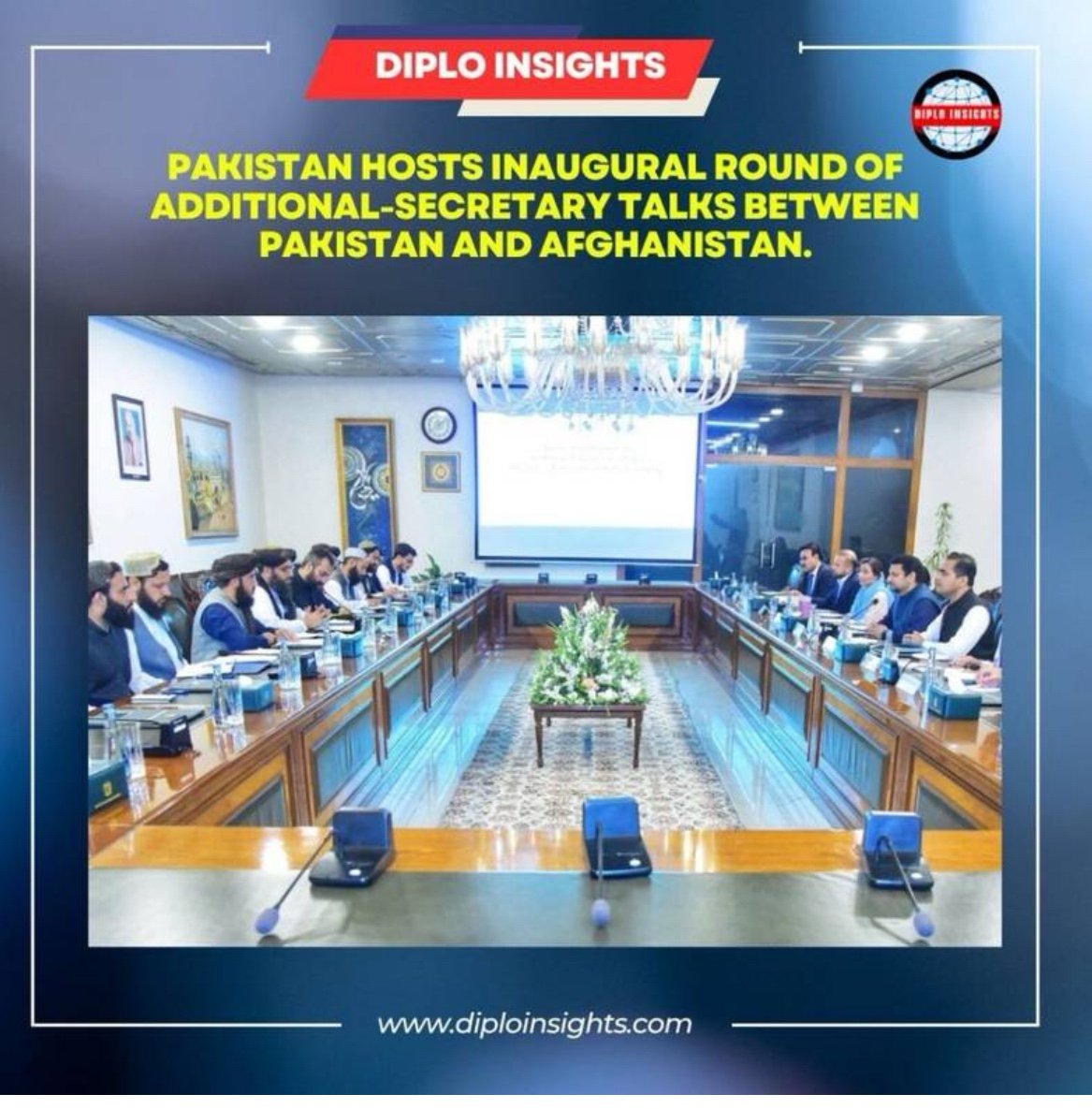
Islamabad, July 8, 2025 – Diplo Insights
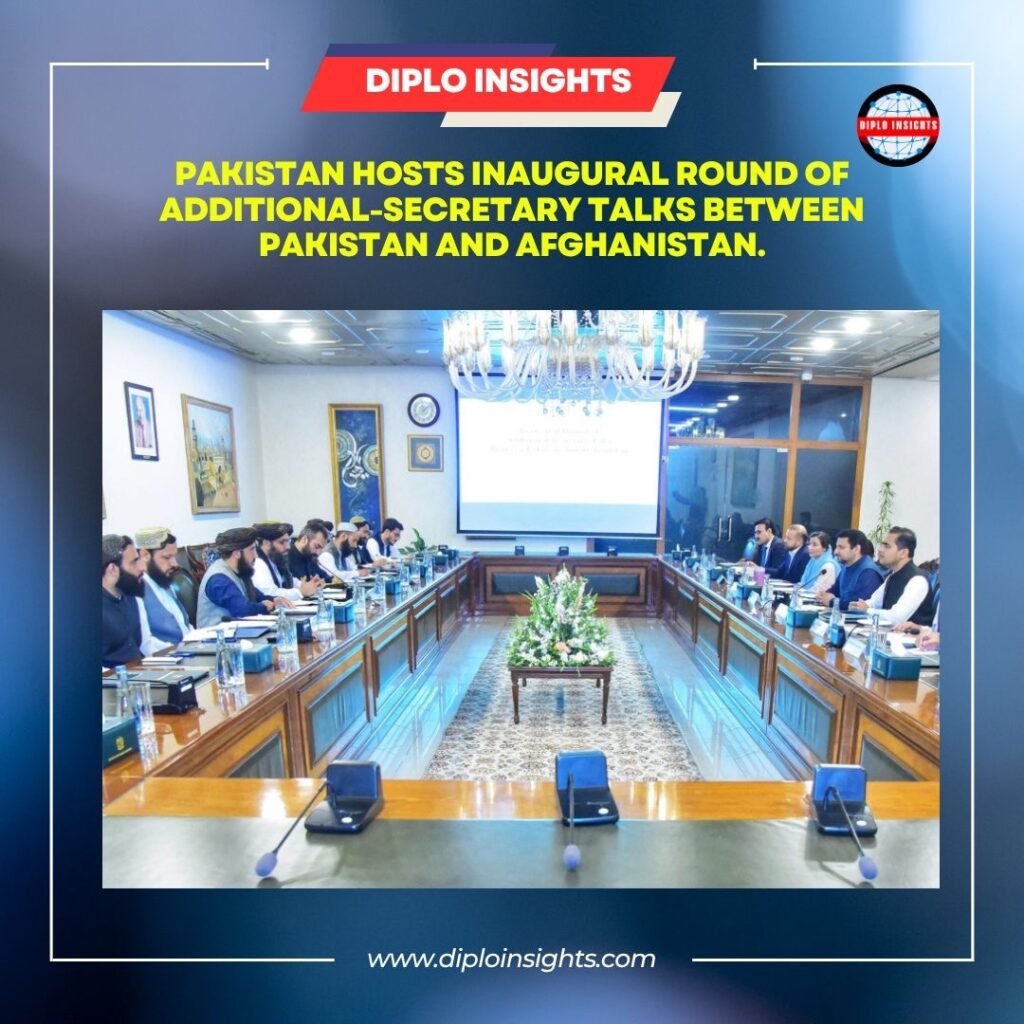
In a significant development for regional diplomacy, Pakistan and Afghanistan convened the inaugural round of the Additional Secretary-Level Mechanism between their respective Foreign Ministries in Islamabad today. This engagement, a follow-up to the April 2025 visit of Pakistan’s Deputy Prime Minister and Foreign Minister to Kabul, marked a renewed commitment to dialogue, mutual cooperation, and sustainable regional integration.
High-Level Representation
The Pakistan delegation was led by Ambassador Syed Ali Asad Gillani, Additional Secretary (Afghanistan & West Asia), while the Afghan side was headed by Mufti Noor Ahmad Noor, Director General of the First Political Division at Afghanistan’s Ministry of Foreign Affairs.
Advancing Trade, Transit, and Economic Integration
The meeting focused on key bilateral priorities, notably trade and transit facilitation, regional connectivity, and security cooperation. Both sides conducted a detailed review of the implementation of trade facilitation measures previously announced during the April visit, which include:
• Removal of the 10% processing fee on Afghan exports,
• Introduction of insurance guarantees to ease the movement of goods,
• Reduction in scanning and examination procedures, and
• Operationalisation of a cargo track-and-trace system.
These initiatives are contributing to smoother transit and increasing confidence among regional traders and freight operators.
The discussions also highlighted the strategic relevance of the Uzbekistan–Afghanistan–Pakistan (UAP) Railway Project. Both sides agreed to expedite the finalisation of the Framework Agreement on the project, recognizing its potential to significantly reduce cargo transport time and cost, while fostering deeper economic ties across Central and South Asia.
Security and Counter-Terrorism: A Shared Priority
Security cooperation took center stage during the Islamabad dialogue, with Pakistan strongly emphasizing the need for immediate and verifiable action against terrorist groups operating from Afghan territory—particularly those responsible for cross-border attacks on Pakistani soil.
The Pakistani delegation expressed serious concerns over the continued presence of groups such as the Tehrik-i-Taliban Pakistan (TTP), which Islamabad has repeatedly linked to violence in Khyber Pakhtunkhwa and Balochistan. Citing recent incursions and infiltration attempts, Pakistan made it clear that the status quo is no longer acceptable.
Afghan representatives, led by Mufti Noor Ahmad Noor, reassured Pakistan of their policy of non-interference and their commitment to ensuring that Afghan soil is not used against any neighboring state.
Both sides recognized terrorism as a shared challenge, requiring sustained cooperation and trust-building mechanisms.
Legal Mobility and Migration Cooperation
Migration and the legal movement of people featured prominently in the talks. Pakistan briefed the Afghan side on its facilitation of cross-border mobility, including the issuance of over 500,000 visas since January 2024 across various categories—business, education, medical, and tourism.
Both countries agreed to strengthen cooperation on legal travel and the voluntary repatriation of undocumented Afghan nationals, in coordination with international humanitarian partners.
Sustained Diplomatic Engagement
Reaffirming their commitment to institutional dialogue, both sides agreed to continue engagements through this Additional Secretary-Level Mechanism, with the next round of talks to be held at mutually convenient dates. They also emphasized the importance of lasting security and stable relations as essential pillars for sustainable development in the region.
Diplo Insights Commentary
Today’s structured dialogue between Islamabad and Kabul goes beyond symbolic diplomacy—it reflects a clear policy trajectory focused on connectivity, conflict resolution, and regional economic transformation. The UAP Railway project, coupled with practical steps on trade facilitation and migration, offers a promising roadmap for rebuilding mutual trust and unlocking multilateral investment potential.
As Pakistan and Afghanistan reinvigorate institutional mechanisms and prioritize regional integration, they inch closer to realizing a shared vision of prosperity grounded in stability, infrastructure, and strategic cooperation.



